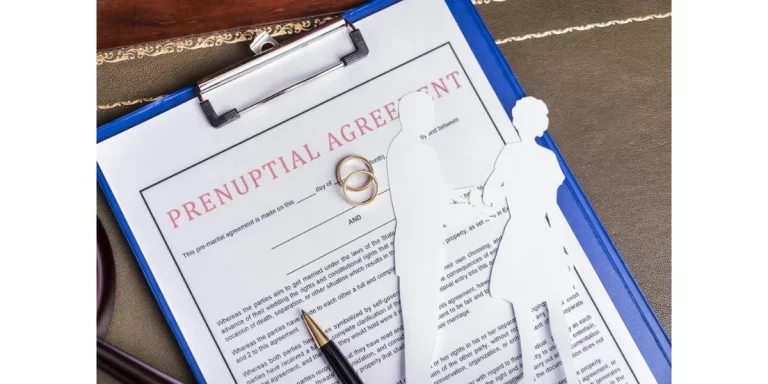Due to legal principles and rules of evidence, certain types of evidence are inadmissible in Australian courts.
What Does Inadmissible Evidence Mean?
Inadmissible evidence refers to information or items presented in court proceedings that cannot be used to influence the judge’s or jury’s decision.
This type of evidence is typically excluded from a trial or hearing because the rules of evidence, which vary by jurisdiction, deem it to be unreliable, irrelevant, or inappropriate.
General Rules
- Hearsay Evidence: Hearsay evidence refers to a statement made outside of a court proceeding that is presented in court to prove the truth of the matter it asserts. It is the topmost entry of what is evidence that cannot be used in court as it lacks integrity. In other words, it’s when a witness in court testifies about something they did not personally witness or experience, but instead, heard from someone else.
- Opinion Evidence: Generally speaking, witnesses may only testify to facts they have personally observed or experienced. Typically, they are not permitted to express their opinion or speculation. However, expert witnesses are an exception to this rule and may offer their professional opinion on particular issues.
- Illegally Obtained Evidence: It is part of the what is evidence that cannot be used in court due to the ‘exclusionary rule,’ evidence obtained through unlawful means, such as a search or seizure, may not be admissible in court.
- Character Evidence: Evidence regarding a person’s character or reputation is generally inadmissible to prove that they behaved in a particular manner on a particular occasion. However, exceptions exist, such as when the character is directly relevant to the case or if the matter is for sentencing.
- Evidence of Insurance: Typically, evidence that a party has or does not have insurance is inadmissible in court because it could influence the decision-making process.
- Privileged Communications: Certain types of communications, such as those between an attorney and client, a physician and patient, or a spouse and spouse, may be protected by privilege and not admissible in court as evidence.
Also read: How Do You Defend Yourself Against An AVO
On What Circumstances Will the Court Accept Hearsay as Evidence?
Generally speaking, hearsay evidence, which refers to an out-of-court statement offered to prove the truth of the matter asserted in the statement, is inadmissible.
The Uniform Evidence Act, which is applicable in several jurisdictions, including the Commonwealth, New South Wales, Victoria, the Australian Capital Territory, the Northern Territory, and Tasmania, outlines exceptions where hearsay evidence may be admissible.
- First-Hand Hearsay: If the person who made the statement had direct knowledge of the events and the evidence is given in a civil proceeding or in an interlocutory proceeding, it may be admissible.
- Business Records: Hearsay evidence may be admitted in court proceedings if it is contained in a document and the making of the document was a routine part of the business.
- Tags and Labels: Statements about an object’s identity, nature, origin, use or ownership on a tag, label or other writing attached or adjacent to an object can be admissible.
- Electronic Communications: Hearsay in electronic communications may be admissible if it pertains to the identity of the sender, date, time or destination of the communication.
- Dying Declarations: In some cases, statements made by a person who believed they were about to die and who has since died, concerning the cause or circumstances of the anticipated death may be admissible.
- Representations About Family History: In some cases, representations made by family members about family history or relationships may be admissible.
- Official Records: Statements made in documents created for official records may be admissible.
Also read: Is it Illegal to Record a Conversation Without Consent?
What is the Unavailable Witness Rule?
The unavailable witness rule is a legal exception to the hearsay rule. Under this rule, hearsay may be admitted in certain cases when the witness who made the statement is unavailable to testify directly.
However, for the unavailable witness rule to apply, certain conditions usually have to be met. While these conditions may vary slightly from jurisdiction to jurisdiction, some of the common ones include:
- The witness is physically or mentally incapable of testifying.
- The witness is dead.
- The witness is out of the jurisdiction and cannot reasonably be expected to attend.
It is not reasonably possible to secure the witness’s attendance by subpoena or other legal process.
Additionally, the hearsay evidence often needs to meet criteria such as:
The original statement was made under oath in a legal proceeding (e.g., previous testimony in a trial, deposition).
- The statement is a dying declaration or statement of personal or family history.
- There was an opportunity for cross-examination when the statement was originally made.
- It’s important to note that even if these conditions are met, it doesn’t automatically mean the evidence will be admitted. The judge has discretion and will consider various factors, such as the reliability of the evidence and the rights of the accused.
Also read: Can a Witness Statement Alone Lead to a Conviction?
Facing Legal Complications?
Know what counts and what doesn’t in your case. Justice Family Lawyers are experts in identifying ‘What is evidence that cannot be used in court’ and building a strong case for you.
With a deep understanding of Australian law, we’re here to guide you every step of the way.
Don’t let inadmissible evidence blur your legal rights. Connect with our AVO lawyers today for a free consultation. Justice Family Lawyers: your trusted legal advisor.
Principal of Justice Family Lawyers, Hayder specialises in complex parenting and property family law matters. He is based in Sydney and holds a Bachelor of Law and Bachelor of Communications from UTS.






2 thoughts on “Evidence That Cannot Be Used In Court | Australia”
Can a 15 yr old give evidence via a video link to the magistrates Court
In Australia, courts have provisions to allow for evidence to be given via video link, particularly for matters involving vulnerable witnesses. This may include children under 18 years. The specific rules and procedures for giving evidence by video link can vary by state and territory, as well as by the type of court proceeding, so it is recommended that you seek advice from a lawyer to ensure that evidence is provided in accordance with the laws applicable to your case.